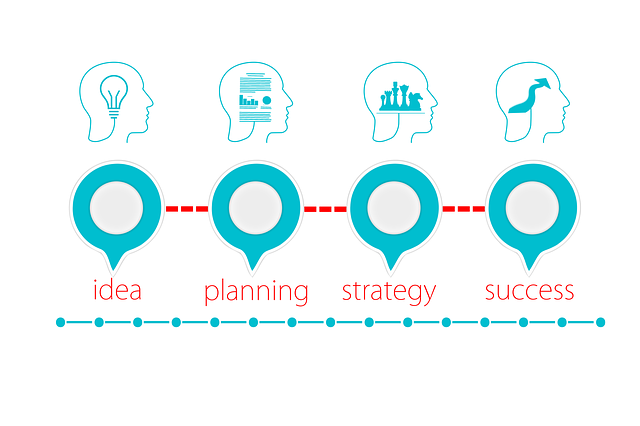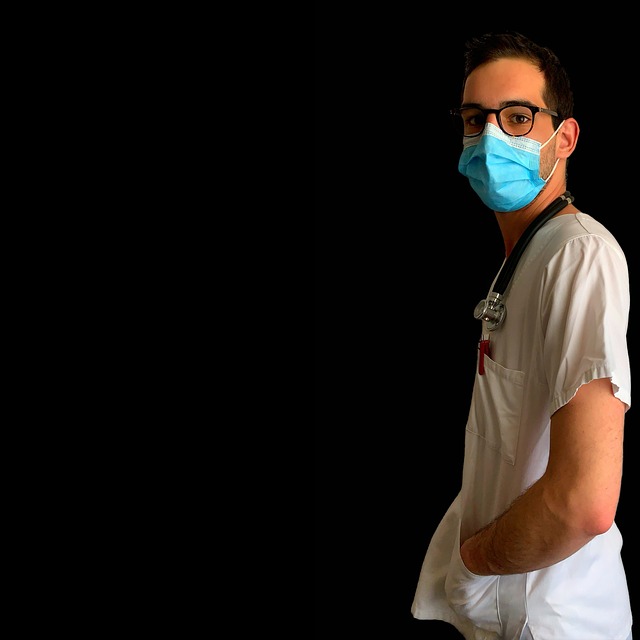In the UK, addressing cultural and linguistic barriers in healthcare is vital for delivering high-quality, inclusive care. Translation services play a pivotal role by translating medical documents, including treatment plans, accurately into patients' native languages. This ensures comprehension, builds trust, and enhances patient adherence to recommended treatments. Using standardized medical terminology and adhering to strict data protection regulations, these services are essential for patient safety and successful treatment implementation. Advanced technologies like machine translation and AI models further improve accessibility and accuracy, fostering effective cross-cultural communication in the UK healthcare sector.
In the UK, ensuring effective communication between healthcare professionals and patients from diverse linguistic backgrounds is paramount. This article explores the challenges and benefits of implementing treatment plans through translation services, focusing on cultural and linguistic barriers in healthcare. We delve into the role of accurate translations, ethical considerations, and case studies showcasing successful implementations. Discover best practices and future trends, highlighting the importance of choosing the right translation partner for optimal patient care when addressing physician’s treatment plans in a multicultural UK setting.
- Understanding the Challenge: Cultural and Linguistic Barriers in Healthcare
- The Role of Translation Services in Overcoming Communication Gaps
- How Accurate Translations Enhance Patient Care in the UK
- Ensuring Consistency: Adhering to Medical Terminology Standards
- The Impact of Human Translation vs Machine Translation in Clinical Settings
- Ethical Considerations: Privacy and Confidentiality in Translation
- Case Studies: Successful Implementation of Treatment Plans with Translation Support
- Choosing the Right Translation Partner for Healthcare Professionals
- Future Trends: Technology's Role in Improving Cross-Cultural Communication
- Best Practices for Physicians to Optimize Treatment Plan Delivery
Understanding the Challenge: Cultural and Linguistic Barriers in Healthcare

Understanding the challenge of providing effective healthcare in the UK involves acknowledging cultural and linguistic barriers that can impact patient care. When physician treatment plans are transferred to a new population, ensuring their applicability and comprehension becomes paramount. The UK, with its diverse ethnic and linguistic makeup, presents unique challenges in this regard, especially for non-English speaking patients.
Translation services play a vital role in bridging this gap. Accurate translation of medical documents, including treatment plans, ensures that patients fully understand their healthcare needs and can actively participate in decisions about their well-being. This is crucial as cultural nuances and language differences can lead to miscommunication, impacting patient trust and adherence to recommended treatments. Effective translation services for physician’s treatment plans in the UK are essential to overcoming these barriers and delivering high-quality, inclusive healthcare.
The Role of Translation Services in Overcoming Communication Gaps

Effective communication is pivotal in healthcare, and ensuring that treatment plans are clearly understood by patients is no exception. When it comes to physician-developed treatment plans for UK patients, translation services play a critical role in overcoming communication gaps. These services ensure that complex medical information is accurately translated into languages spoken by the patient population, facilitating better comprehension and adherence to prescribed care.
In the diverse linguistic landscape of the UK, where an estimated 49% of the population speaks a language other than English at home, translation services are indispensable. Professional translators with medical expertise bridge the gap between medical jargon and patients’ native languages, enhancing the likelihood that treatment instructions will be followed precisely. This is particularly important in ensuring patient safety and positive health outcomes.
How Accurate Translations Enhance Patient Care in the UK

Accurate translations of physician’s treatment plans are paramount in enhancing patient care within the UK healthcare system. Effective communication bridges the gap between medical professionals and patients, ensuring the latter understand their conditions and the prescribed course of action. This is especially crucial for diverse populations where English may not be the first language, or for patients with varying levels of literacy.
Translation services specifically tailored for physician’s treatment plans in the UK play a pivotal role in this process. Professional interpreters and translators ensure medical jargon is translated accurately, preserving the integrity of the treatment plan while making it accessible to all UK patients. This not only improves patient adherence to their care plans but also fosters trust between healthcare providers and individuals from diverse linguistic backgrounds.
Ensuring Consistency: Adhering to Medical Terminology Standards

Ensuring consistency in healthcare communication is vital, especially when translating treatment plans for international patients. In the UK, adhering to medical terminology standards is a critical step in this process. Standardized medical language helps bridge the gap between healthcare professionals and patients, ensuring clear understanding and effective communication.
Translation services for physicians’ treatment plans in the UK must incorporate these standards to maintain accuracy and consistency. This involves using recognised medical terminologies and glossaries to convey complex medical concepts succinctly. By adhering to these guidelines, healthcare providers can guarantee that treatment plans are not only accurately translated but also easily comprehensible for UK patients, enhancing overall patient care and safety.
The Impact of Human Translation vs Machine Translation in Clinical Settings

In clinical settings, the accuracy and reliability of translation services for physician’s treatment plans in the UK are paramount. While machine translation tools have become increasingly sophisticated, human translation remains indispensable. Human translators, equipped with medical expertise, can provide nuanced interpretations that consider cultural context, local terminology, and rare medical conditions, ensuring patient safety and understanding.
Machine translation may offer speed and cost-effectiveness, but it often falls short in capturing the intricacies of clinical language. Human translators can address ambiguity, convey complex medical concepts accurately, and adapt the content to suit the patient’s level of understanding. This personalized approach is crucial for effective communication between healthcare professionals and UK patients, fostering trust and adherence to treatment plans.
Ethical Considerations: Privacy and Confidentiality in Translation

When translating treatment plans for UK patients, ethical considerations surrounding privacy and confidentiality are paramount. Patient data must be handled with utmost care to ensure it remains secure and accessible only to authorized personnel. Reputable translation services for physician’s treatment plans in the UK adhere to strict data protection regulations, such as GDPR, to safeguard sensitive medical information.
These services employ specialized translators who not only possess expertise in healthcare terminology but also understand the ethical implications of their work. They are trained to maintain patient confidentiality and adhere to strict non-disclosure agreements. Additionally, advanced encryption technologies are implemented to protect digital translations, ensuring that patient data remains secure throughout the translation process and subsequent storage.
Case Studies: Successful Implementation of Treatment Plans with Translation Support

In many cases, the successful implementation of treatment plans for UK patients relies heavily on effective communication and understanding. This is where translation services for physicians’ treatment plans in the UK play a pivotal role. By providing accurate and culturally sensitive translations, healthcare providers can ensure that every patient receives clear instructions and guidance, fostering better adherence to their prescribed treatments.
Case studies have shown that with the support of professional translation services, healthcare teams have been able to implement complex treatment plans with remarkable success rates. These translations go beyond simple word-for-word replacements; they involve adapting medical terminology and concepts to be easily comprehensible for diverse patient populations, thereby enhancing overall care outcomes.
Choosing the Right Translation Partner for Healthcare Professionals

When it comes to healthcare, accurate and efficient communication is paramount. For medical professionals in the UK looking to implement treatment plans from international sources, choosing the right translation partner is crucial. This decision can significantly impact patient care and outcomes.
A specialized translation service with expertise in healthcare terminology and protocols ensures that physician’s treatment plans are translated accurately and coherently. Look for partners who employ native speakers and have a proven track record in providing culturally sensitive translations. In today’s digital age, online platforms and tools can facilitate quick turns around times without compromising quality, enabling medical professionals to access up-to-date translations when needed.
Future Trends: Technology's Role in Improving Cross-Cultural Communication

In the ever-evolving healthcare landscape, technology plays a pivotal role in bridging cultural gaps and enhancing cross-cultural communication. As the UK’s diverse patient population continues to grow, efficient translation services for physician’s treatment plans become increasingly vital. Advanced technologies like machine translation tools and AI-powered language models are revolutionizing the way medical information is conveyed. These innovations not only ensure accurate real-time translations but also adapt to regional dialects and cultural nuances, ensuring that every patient receives clear and culturally sensitive care.
The future looks promising with ongoing developments in natural language processing (NLP) and computer-assisted translation (CAT). These tools can streamline the translation process, making it faster and more precise. By integrating these technologies into healthcare systems, medical professionals can efficiently share treatment plans, reduce errors, and foster better patient-doctor relationships, ultimately improving healthcare outcomes for all UK patients.
Best Practices for Physicians to Optimize Treatment Plan Delivery

In the UK, successful translation of treatment plans requires a meticulous approach to ensure patient safety and understanding. Physicians play a pivotal role in optimizing delivery by adhering to best practices. Firstly, they must involve patients actively in the interpretation process, explaining complex medical terminology in simple language and addressing any concerns promptly. This not only enhances patient comprehension but also fosters trust.
Additionally, utilizing professional translation services tailored for medical documents is essential. These services employ qualified linguists who understand medical jargon and can accurately convey treatment instructions in the patient’s native language. Regular training on cross-cultural communication and cultural sensitivity will further equip physicians to tailor their approach, ensuring effective transmission of care instructions for diverse UK patient populations.
The effective delivery of treatment plans relies heavily on clear communication, and translation services play a pivotal role in overcoming cultural and linguistic barriers within the UK healthcare system. By ensuring accurate and consistent translations, medical professionals can enhance patient care, improve outcomes, and foster better relationships with diverse patient populations. As technology advances, human-powered translation alongside innovative tools will continue to shape the future of cross-cultural communication in healthcare, ultimately benefiting patients and providers alike across the UK.
